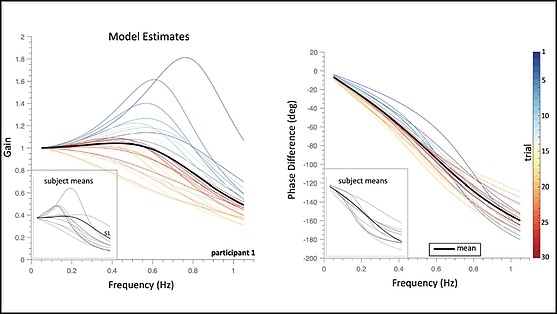The brain’s auditory system tracks the speed and location of moving sounds in the same way the visual system tracks moving objects. The study recently published in eNeuro lays the groundwork for more detailed research on how humans hear in dynamic environments.

Image Credit: Society of Neuroscience
People who use hearing aids have trouble discriminating sounds in busy environments. Understanding if and how the auditory system tracks moving sounds is vital to improving hearing aid technology. Prior research utilizing eye movements to gauge whether the brain is following the trajectory of a moving sound indicates it cannot. A new study from García-Uceda Calvo et al. instead used head movements, a more accurate measure of sound tracking.
The team analyzed head movements of hearing participants as they tracked randomly moving sounds in a dark room. Their analysis revealed humans follow moving sounds, with great accuracy. The auditory system actively tracks the velocity of a sound, just like the visual system, rather than changes in position. The participants improved their sound tracking ability over the course of the experiment, a sign the auditory system was picking up on hidden patterns in the sound trajectories and making predictions. These results indicate the brain possess cells and circuits dedicated to tracking the velocity of sounds.